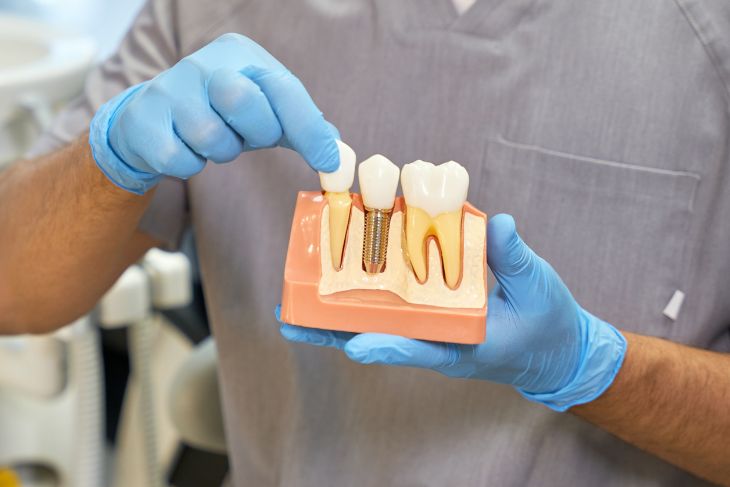
What Is A Dental Implant?

If you're missing one or more teeth, you may have heard of dental implants. Dental implants are a popular and effective option for tooth replacement. But what exactly are they?
A dental implant is an artificial tooth root that is surgically placed into your jawbone. It provides a strong and sturdy foundation for a replacement tooth or bridge. Dental implants are made of titanium or other materials that are biocompatible with your body, which means they are safe and won't be rejected by your body's immune system.
The Three Parts Of A Dental Implant
A Dental Implant Is Made Up Of Three Main Parts:
- The Implant Post: This is the part that is inserted into your jawbone. It acts as the tooth root and is made of titanium, which is a strong and durable metal.
- The Abutment: This is a small connector piece that is placed on top of the implant post. It is used to attach the replacement tooth or bridge to the implant post.
- The Dental Crown: This is the visible part of the tooth that is attached to the abutment. It is custom-made to match the color, size, and shape of your natural teeth, so it looks and feels like a real tooth.
Who Is A Candidate For A Dental Implant?
Dental implants are suitable for most people who are missing one or more teeth. However, there are some factors to consider, including:
- Overall health: Dental implant surgery requires a healthy body, so if you have certain medical conditions, your dentist may recommend an alternative tooth replacement option.
- Jawbone density: A strong and healthy jawbone is necessary to support the dental implant. If your jawbone is too thin or weak, you may need a bone graft before you can receive an implant.
- Gum health: Healthy gums are important for the success of a dental implant. If you have gum disease, it will need to be treated before the implant can be placed.
The Dental Implant Procedure
The dental implant procedure typically involves three steps:
- Initial Consultation: Your dentist will examine your teeth, gums, and jawbone to determine if you are a good candidate for dental implants. They may take x-rays or 3D images to plan the implant placement.
- Implant Placement Surgery: The implant post is surgically placed into your jawbone. It may take several months for the post to fuse with the bone, which is called osseointegration.
- Final Restoration Placement: After the implant has fused with your jawbone, the abutment and dental crown are attached to the implant post to complete the replacement tooth.
Recovery And Aftercare
After the implant placement surgery, you may experience temporary discomfort, swelling, or bruising. Your dentist will provide instructions for aftercare, including how to care for the implant site and what to do if there are any issues.
Benefits Of Dental Implants
There are many benefits of dental implants, including:
- Improved oral health: Dental implants help preserve the natural bone in your jaw and prevent further tooth loss.
- Aesthetics: Dental implants look and feel like real teeth, so they can improve your smile and boost your confidence.
- Function: Dental implants allow you to eat, speak, and smile with confidence, without worrying about your teeth slipping or falling out.



